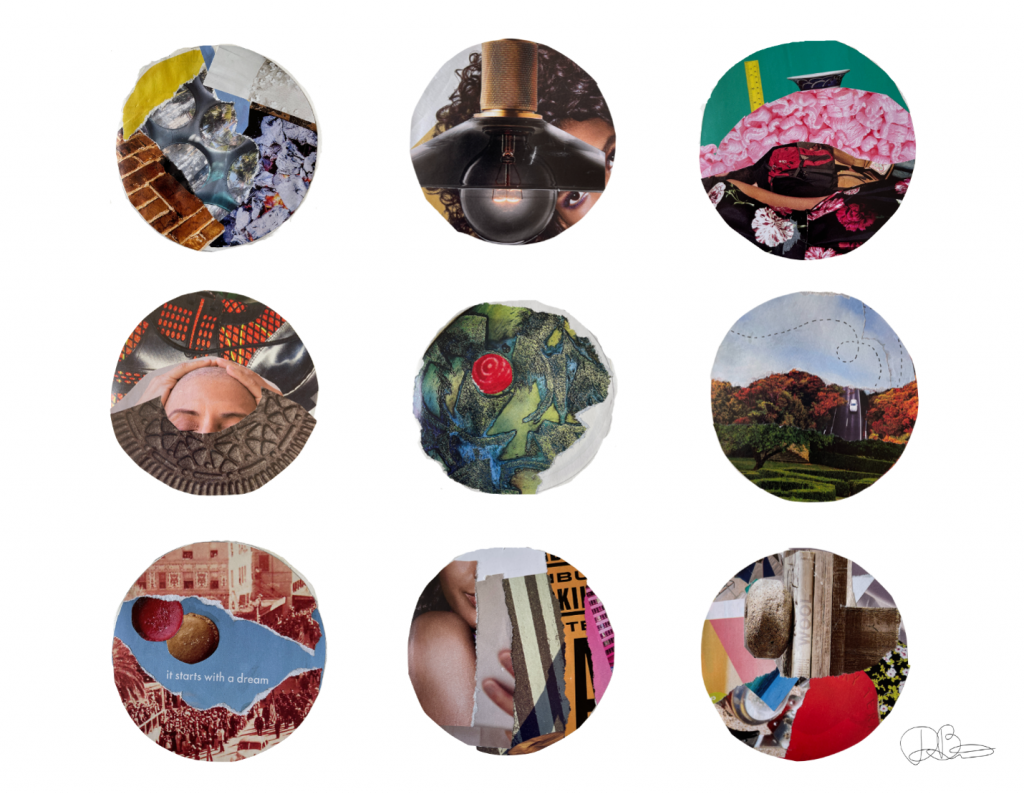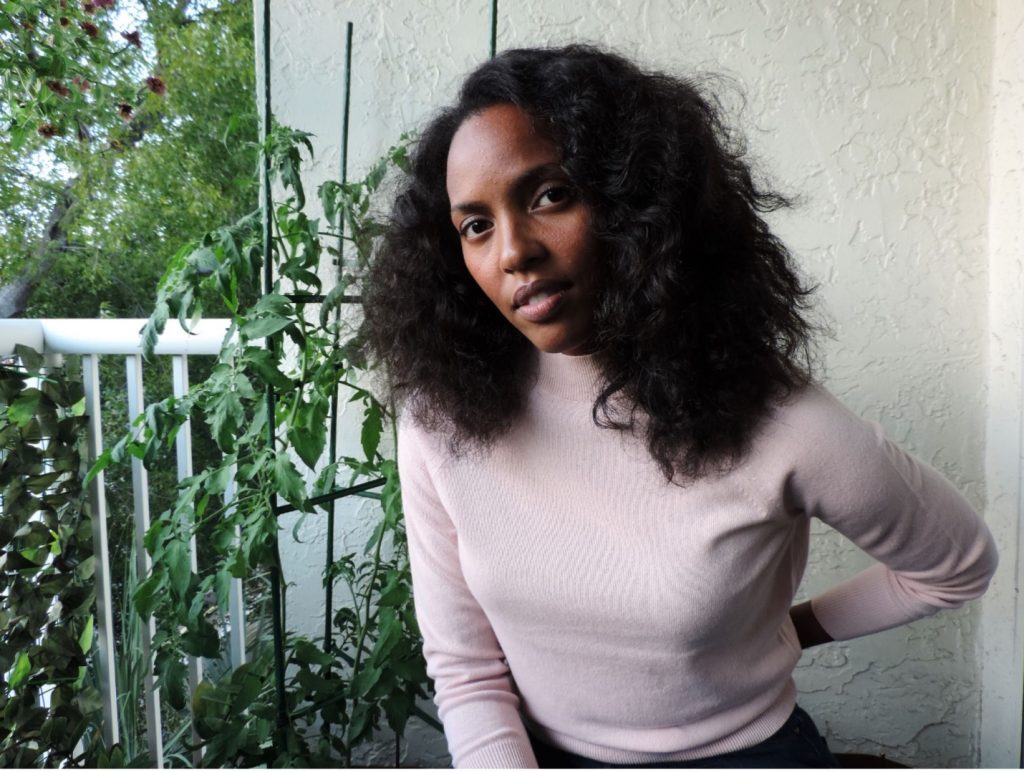In this Featured Member series, AATA celebrates the work of our members. During the coronavirus pandemic, we are inviting members to share their experiences about how their professional and personal lives have changed.
May 17, 2021
What has changed in your job during the COVID-19 pandemic?
Living in the time of COVID has been all about change and adapting. I have been fortunate to be able to continue seeing my clients during these times. I was offering tele-art therapy sessions pre-COVID, but since April 2020 I have moved fully virtual. The biggest change has been shifting to serve a more specific population—young womxn of color—primarily those who identify as Black, Afro Latina, Latinx, or mixed-race/multi-ethnic. In 2020, I starting getting an influx of potential clients specifically looking for a Black therapist/art therapist. So, I gave my practice a rebrand and began creating a space that felt more authentic to the needs of these clients many of who continue to be underserved, undervalued, and are the target of harm and violence.
In what ways have your clients been impacted by COVID-19? Have you been able to continue care? How are you managing your own stress during this time?
COVID has greatly impacted many of my clients. From the loss of jobs and loved ones to illness, and debilitating isolation, worry, and stress—there’s been a lot to unpack during sessions. Offering tele-art therapy has proved helpful. It’s ensured continuity of care despite quarantines and social distancing orders. Several clients have reported looking forward to their art therapy sessions. It’s become their “me time” and space to “just be” creatively as we process things happening in their life. Managing my stress, health and well-being became even more of a priority during 2020 and into 2021. Self-caring has been all about stepping away from the screen, slowing down, and being the best caregiver I can be to myself. Time spent in nature, tending to my plants, cooking, and time with my dog RZA has been most fulfilling. And lots of rest! Creating art has also been helpful, but I haven’t really had the capacity to work on big, long-term pieces like I used to pre-COVID. I have moved to working in small sketchbooks. Around June of 2020, I started a practice of creating a daily circle (aka mandala) to exercise my creativity and process the many things I am thinking, feeling, and experiencing.
How have race related issues, social justice, and racism informed or impacted your work as an art therapist?
Given the population I work with, race-related issues seem to come up in almost every session. That should tell us all something. Holding space for my clients means making room for the difficult topics of racism, colonialism, and white supremacy. These institutions are often a big part of the trauma clients experienced (and continue to experience). I often wonder what it would mean for my clients if they had a therapist who was not of color—would they be able to address these issues openly, authentically, and without further harm? I strongly believe therapists must practice from a place of cultural humility and recognize the limitations and risks of working with clients of color. Cultural competency is not enough to gain an understanding of the complex issues of race (in this country). It’s is an ongoing learning process. No one course, workshop, or book can teach all we need to know. And we cannot solely rely on the clients or the individuals of different racial/cultural groups to teach us.

“Daily Circles from 2020” by Deanna Barton. Torn magazine pages on paper. July – Dec 2020
Creating a daily circle (aka mandala) during COVID became a way to quickly process thoughts and feelings related to isolation, community, injustice, pain, change, identity, grief, and healing. Each circle was created intuitively without much planning and the process was usually accompanied by music. Individually, the circles are a record of a moment in time. Collectively, the circles illuminate my humanness. The practice of creating daily circles became a process I shared with my clients, many of who adopted this practice and adapted it to their needs and medium of choice.
Deanna Barton, ATR-BC
 Deanna Barton is a Board Certified Art Therapist, art educator, and artist. She specializes in helping people of color process deep pain, creatively begin to heal, and change their narratives through art expression and mark-making. She received a Master’s in Art Therapy from The George Washington University and completed her undergraduate studies at Spelman College.
Deanna Barton is a Board Certified Art Therapist, art educator, and artist. She specializes in helping people of color process deep pain, creatively begin to heal, and change their narratives through art expression and mark-making. She received a Master’s in Art Therapy from The George Washington University and completed her undergraduate studies at Spelman College.
She recently founded ALLUMA Art & Healing to address the specific needs of young womxn of color healing from anxiety, depression, perfectionism, and experiences of childhood, racial, and workplace trauma. She believes we are intrinsically creative, and expressing our creativity can help us find balance and fulfillment in life as we strive to grow and heal.
Deanna also works to increase diversity and equity within the field of art therapy by educating and supporting students of color interested in pursuing careers in expressive therapies. She is Chair of the Florida Art Therapy Association’s (FATA) Multicultural and Social Justice Committee, a practitioner member of the Accreditation Council for Art Therapy Education (ACATE), and a member of AATA’s Multicultural Committee.
